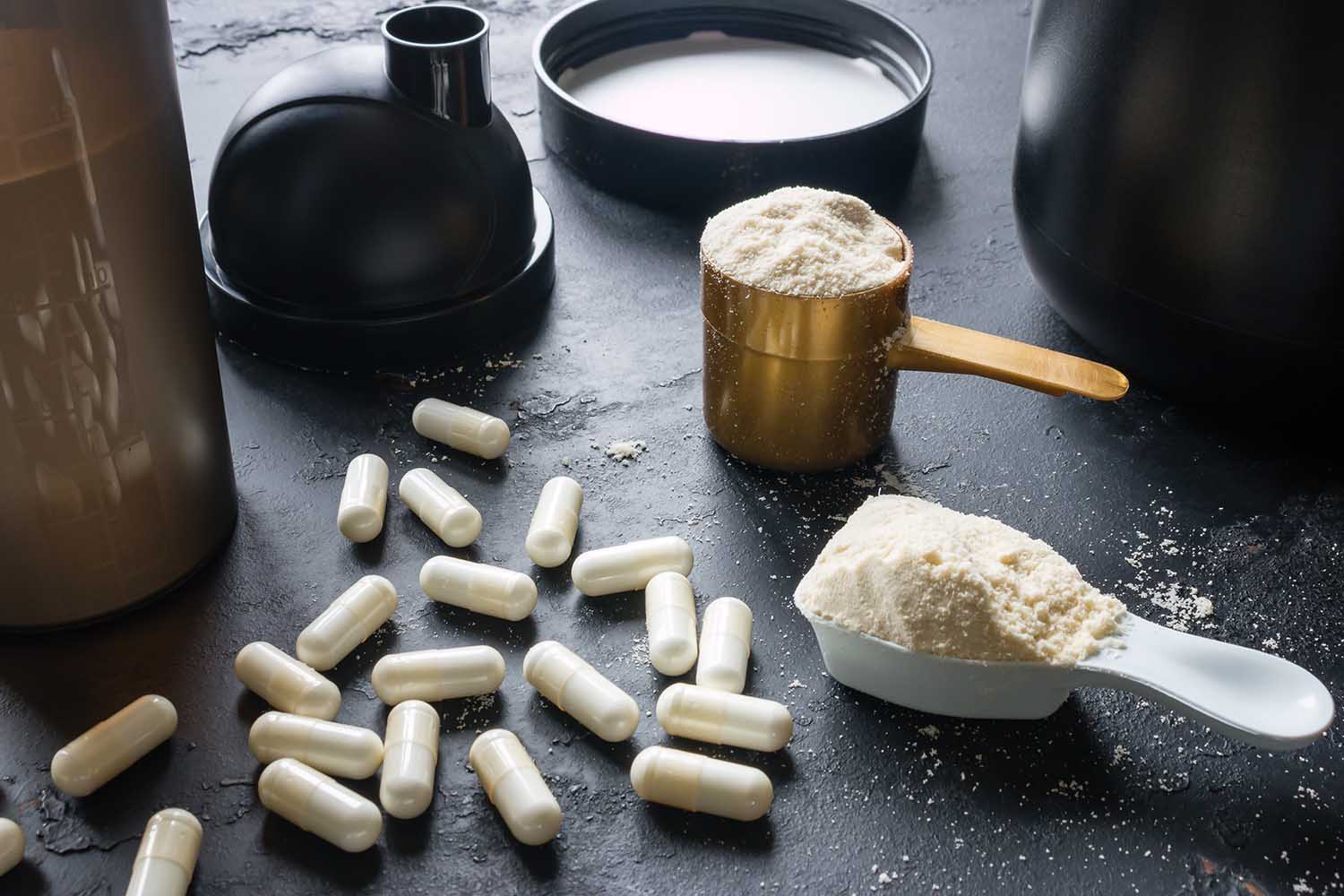Advertisement
10 Health Benefits of Creatine
A popular performance supplement
Fact-Checked
This article has been written and fact-checked by experts in the field.

Helps make energy
Creatine has become one of the best-selling supplements to enhance performance or muscle gain. Creatine monohydrate is a small peptide made up of amino acids, therefore it is a protein (not a steroid) that naturally exists in our bodies. Formed in the liver, pancreas, and kidneys, creatine is naturally found in high-protein foods such as meat, poultry, eggs, bone broth, fish, dairy products, and even breast milk.
Let’s dive into 10 health benefits of creatine.

ATP (adenosine triphosphate) is energy, in a nutshell. Our cells need it to function and as fuel for our muscles. When we eat macronutrients (carbohydrates, fats, and proteins), they are used to make ATP. Creatine plays an important role here to both create and use the energy we need during activities. Basically, creatine gives you energy.
Increases muscle mass

This is probably the best-known benefit of creatine. In the same way creatine helps to build ATP and thus energy, it also helps with protein synthesis—increasing growth of lean muscle mass. Creatine increases a hormone called IGF-1 which stimulates new muscle mass production. It also increases the water content in muscle cells, growing muscle size in the process.
Improves strength or power

Creatine storage capacity in our muscles is limited, but with supplementation it’s been seen that creatine can help restore stores of ATP faster than doing activity alone. As a result, it can help sustain physical effort for longer. Studies on creatine have revealed high power outputs by gym goers, as well as different athletes.
Helps muscles recover

Not only does creatine help in creating muscle mass, but it also helps the muscles recover from exercise itself. This is important for those who have a high metabolism or are worried about muscle wasting. Because creatine is heavily involved in forming new proteins, it actually prevents muscle breakdown during exercise as well.
Enhances athletic performance

Endurance athletes and creatine have history for good reason. Creatine has been shown to maximize performance during high-intensity interval training (HIIT), as well as resistance training sessions in physically active young adults. For example, interval sprint cycling performance with various durations has been shown to be better with creatine supplements than without.
Improves brain power

Cognitive improvements such as mental alertness, concentration, and memory have all been connected to creatine. Studies have shown that creatine can improve short-term memory of healthy individuals, including when used as a supplement for vegetarians. In one study, hypoxia-induced issues such as attention, were restored when participants were given creatine supplements.
Improves heart health

Creatine seems to also protect our heart. Using creatine supplementation may be a potential therapeutic strategy for improving vascular health in older adults or those with existing cardiovascular diseases. Because creatine works to preserve and build muscle, the heart benefits as well. Just like the brain, the heart is muscle mass too.
Helps with nerve signals

There is evidence to support the claim that people with certain neurological conditions may benefit from taking creatine supplementation. Dietary creatine has been shown to improve symptoms in neurological disorders. Because it helps to build muscle, creatine is also being looked at to help in conditions such as muscular dystrophy, multiple sclerosis, and Parkinson’s.
Improves overall fatigue

It makes sense to think that if the energy increases, fatigue decreases. Creatine has been shown to decrease reports of tiredness, not only during exercise but also in sleep-deprived people. Furthermore, dizziness, fainting, and fatigue have been noticed in people with low levels of creatine.
Helps with depression

Although much lesser known, studies have shown that creatine has can be helpful with depression, potentially improving depressive markers. The research seems to be pointing to women specifically, as seen in a 2020 study, in which women with depression symptoms seemed to improve after taking creatine.





